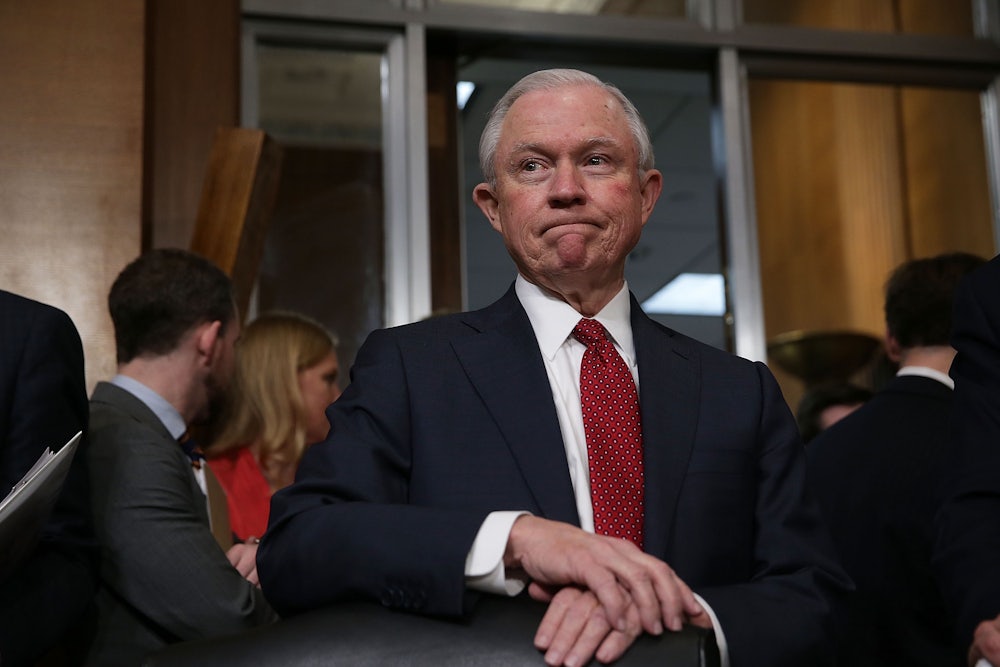The most important development from James Comey’s explosive testimony before the Senate Intelligence Committee on Thursday was that the former FBI Director methodically made the case that President Trump obstructed justice by asking Comey to end the investigation into Michael Flynn’s ties to Russia and later by firing him. But the second most important development was more subtle: Comey and some Democratic Senators, most notably Kamala Harris, ensnared Jeff Sessions even more tightly in the ongoing Russia investigation.
Sessions, of course, has been intimately involved in this investigation for quite a while. He recused himself (albeit in a confusing manner) in March after it became clear that he lied to Congress during his confirmation hearings about meetings he had with Russian Ambassador Sergey Kislyak during the campaign. But during his testimony, Comey suggested that misleading Congress about the meetings with Kislyak was not the only reason why Sessions recused himself.
Facts that, Comey says, would have made Sessions' continued involvement in Russia investigation "problematic." https://t.co/83RYx2Ekn4
— Olivier Knox (@OKnox) June 8, 2017
This is bad enough for Sessions, given his possible role in the Russia story and the fact that he was technically leading the investigation into Russia’s involvement in the 2016 election as attorney general until his recusal. (That Sessions does not seem to have fully recused himself from that investigation is also bad.) But Senator Kamala Harris, a former prosecutor, asked Comey a series of questions with the clear intention of building a case against Sessions.
Here, Harris is building a broad case against Sessions—that he misled Congress relating to his meetings with Russian officials, that he violated his recusal in the Russia investigation, and that he may have influenced that investigation as attorney general, either before his recusal or after it.
Sessions’s role in both Comey’s firing and the Russia investigation is extremely significant, and we don’t have a lot of information about it. But the question of what Sessions was aware of—particularly as it pertains to Trump’s attempt to influence Comey and Comey’s eventual firing—and when he was aware of it are crucial to understanding what unfolded. It will tell us whether or not Sessions was also involved in any obstruction of justice that may have occurred.
Sessions is going to have to testify to Congress before this is all over. Trump came out looking the worst after Comey’s testimony. But Sessions is close behind.
